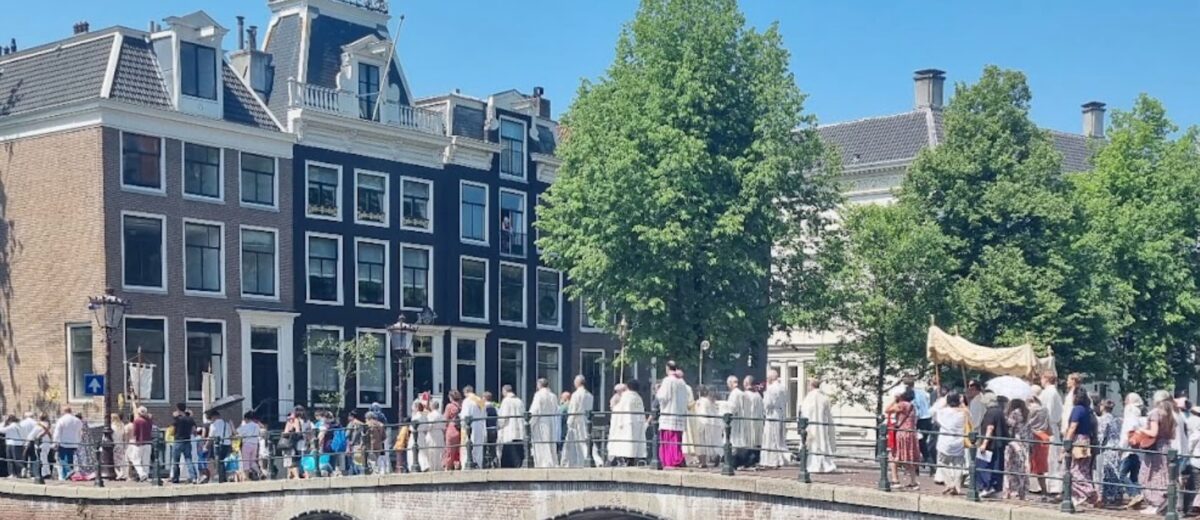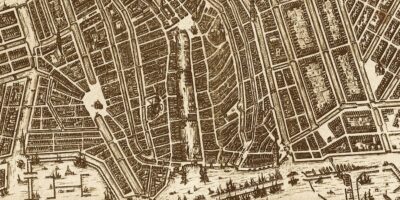The horrific outburst of violence between the Hamas and Israel this week is a challenge to all followers of Jesus not to resort to knee-jerk responses: on the one hand, of blind support for everything Israel does and, on the other, blanket condemnation and fear of all Muslims in general.
Much of the world rightly condemns the Hamas attacks and stands behind Israel’s right to self-defence. Yet Israel’s immediate response resembles what we have come to expect from Putin’s Russia. The blockade of the Gaza strip has left many of the two million inhabitants without food, water and electricity and led to over 2000 deaths, including UN workers, paramedics and journalists.
Many European Christians are susceptible to becoming more Islamophobic after Islamic terrorist attacks. They have voted for extreme right-wing populist parties focusing on the perceived threat of the Islamisation of Europe. I have written before about such politicians who sow half-truths and fear.
Yet we must resist polarisation among the religious communities in our cities in response to current international tensions.
This week happened to be a three-day study intensive in our masters programme, Missional leadership and European studies. ‘Islam’ was among the secular, political and religious challenges and opportunities in Europe today on which we focused. Guest lecturer was Dr Bert de Ruiter, who facilitates the Network of Ministries to Muslims in Europe of the European Evangelical Alliance.
Bert and his wife Jenny are passionate about building bridges between Christians and believers of other religions, particularly Islam – whether individuals or institutions (churches, mosques, synagogues and temples). Bert observes that Christians and Muslims often live in the same town, neighbourhood or street, but do not necessarily interact. An average Christian does not naturally associate with Muslims. And vice versa. We tend to avoid each other rather than seek each other out. He encourages churches and mosques, as well as individual Christians and Muslims, to meet, interact and get involved in each other’s lives.
He has written a book and developed a course (available online), both called Sharing lives, which he and Jenny model in their own lives. Recently my wife and I were invited to their 40th wedding anniversary along with their family and close friends, including a good number of Muslims.
Brother Andrew used to say, ‘if we don’t go to the nations, God will bring them to us’. In the sovereignty of God, Bert points out, Muslims are in Europe to stay. Instead of seeing them as a threat, he argues, we should recognise the opportunity to help Muslims understand true Christianity; to break down the walls of hostility that have been built for centuries between Christianity and Islam; to show Muslims the way of the Cross, the way of grace and unconditional love; to welcome those who are seeking for the truth that they don’t find in Islam, and, to see them come to faith in Christ.
We should respond to the presence of Muslims in our continent, says Bert, with:
- a compassionate heart: Paul told the Thessalonians (1 Thess 2:8): ‘We loved you so much that we were delighted to share with you not only the gospel of God, but our lives as well.’
- an informed mind: We need to know who our Muslim neighbours are, where they come from, their dreams, aspirations, fears and concerns.
- an involved hand: All kinds of practical ways can bring us alongside Muslims: language, work, housing etc. They can become allies in dealing with problems in our city or neighbourhood, against social abuses (e.g. abortion, drug abuse, crime).
- a witnessing tongue: Once we are compassionately informed and involved, we will find opportunities to testify about Jesus in words given hands and feet in daily life.
Bert has helped initiate several inter-faith networks in the Netherlands. On behalf of an Amsterdam network, he drafted the following public statement in response to this week’s events in Israel:
The Interreligious Network Amsterdam-Centrum, a network of churches, mosques and synagogues in Amsterdam’s city centre district, has noted with horror the flare-up of fighting between Hamas and Israel, resulting in many deaths, injuries and destruction. We distance ourselves from the atrocities that destroy societies and the vindictiveness that violence evokes. We sympathise with all victims, Jews as well as Palestinians, and pray in our communities of churches and mosques, for peace and reconciliation, not only in the Middle East, but also elsewhere in the world.
We profess that peace and justice are among the essential values of our faith. Therefore, as religious communities in Amsterdam Centre, we work together to prevent international tensions from alienating the harmonious relationships we are building in Amsterdam Centre. Should there be people who need a moment of silence, or comfort, or prayer, do not hesitate to drop by one of the churches, synagogues or mosques in Amsterdam Centre.
How can we peacemakers and bridge-builders in our neighbourhood?
Till next week,



